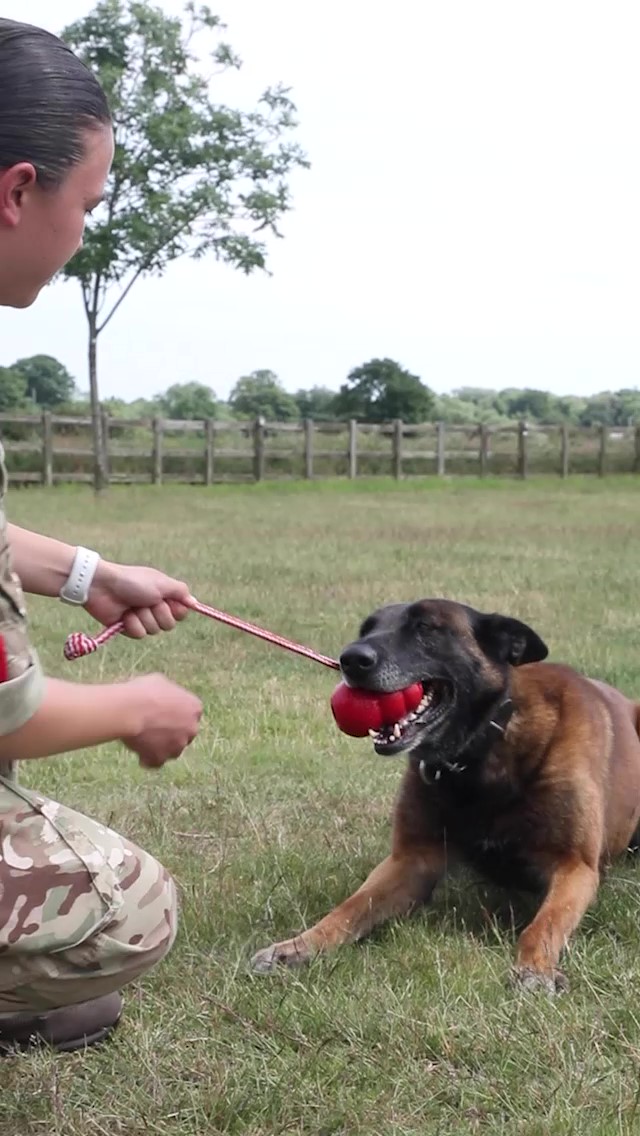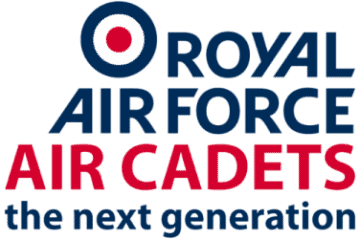'Controlled aggression - from the dogs and the handlers!'
Here at RAF Coningsby, we have superbly trained working dogs and handlers, ready to guard assets on the Station. The Military Working Dogs Section sits within the Police and Security Flight which is a unique blend of law enforcement, counterintelligence, and protective security skills. Including the Military Working Dogs (MWD), they make up a flexible, agile, and highly capable force.
“I wanted to be a dog handler because who wouldn’t want to work with dogs! However, to be a dog handler you must first complete police training for 6 months, and then you may go onto complete a basic dog handling course after this.” - Corporal Stretton
To become a dog handler, personnel must apply for a role as police and once training is completed, they can be streamed into different sections such as MWD. The basic dog handling training consists of 3 weeks of practical learning to ensure the MWDs can be handled safely. On this course, students are taught how to handle, train and most importantly look after their Military Working Dog’s welfare, including animal husbandry, kennel management and veterinary first aid. Afterwards, the handlers will be confident in training, welfare and operational procedures with the dogs which will enable them to continually improve on a daily basis.
The dogs and handlers are trained at the Defence Animal Training Regiment (DATR) and then sent to units to carry out their working duties where they will be approximately 2-3 years old by this time. DATR delivers animal handling training for more than 400 personnel and role specific training for hundreds of Military Working Animals per year including dogs and horses. The unit is a joint service establishment with serving personnel from several Army regiments and the RAF Police.
When the dogs arrive at the MWD section, they will be allocated a kennel and a handler. The dogs will eat twice a day and sleep in their kennel, unless they are patrolling on a night shift. In the day, handlers will take each dog out for training sessions which vary in length depending on the dog's health and ability. Training sessions can range from completing the agility course to keep the dog physically fit and mentally capable, to practising bite work or searching cars.

.jpg)
The sniffer dogs possess up to 300 million olfactory receptors in their noses, compared to about six million in humans, with their brain capable of analysing smells 40 times greater than ours. This makes them the perfect candidate for sniffing out explosive devices, weapons, and illegal drugs.
The protection dogs are trained to detect the presence of an intruder and deter. Under the control of a handler, they patrol RAF Coningsby and act as protection for the handler. The dogs’ acute senses of smell and hearing enable them to reduce the manpower required to guard the Station, especially at night.
“Dogs are essential for our job role as their senses are much more heightened than ours, use of the dog will alert us to threats we may face at night.” - Corporal Stretton
A career for the dogs varies between 6-8 years depending on health and performance ability. When they retire, they will be adopted by a handler or other RAF personnel. There is a strong bond between the handler and dog which is strengthened over years of training and care. The dogs are not only a form of protection for the handlers, but also a companion. They are able to integrate well in to ‘normal’ life after serving, Tina, the retired protection dog, spends most of her time sleeping and waiting patiently for someone to sneak her a treat in the office!
.jpg)
.jpg)
“I wanted a career working with dogs so applied to the RAF Police and requested to be a dog handler. To anyone wishing to apply, it is a very rewarding career, far from any normal 9-5, and that is what I love about it.” - Acting Corporal Fields
Would you like to see more? Head over to our social media pages @rafconingsby to watch the capabilities of these amazing animals.









